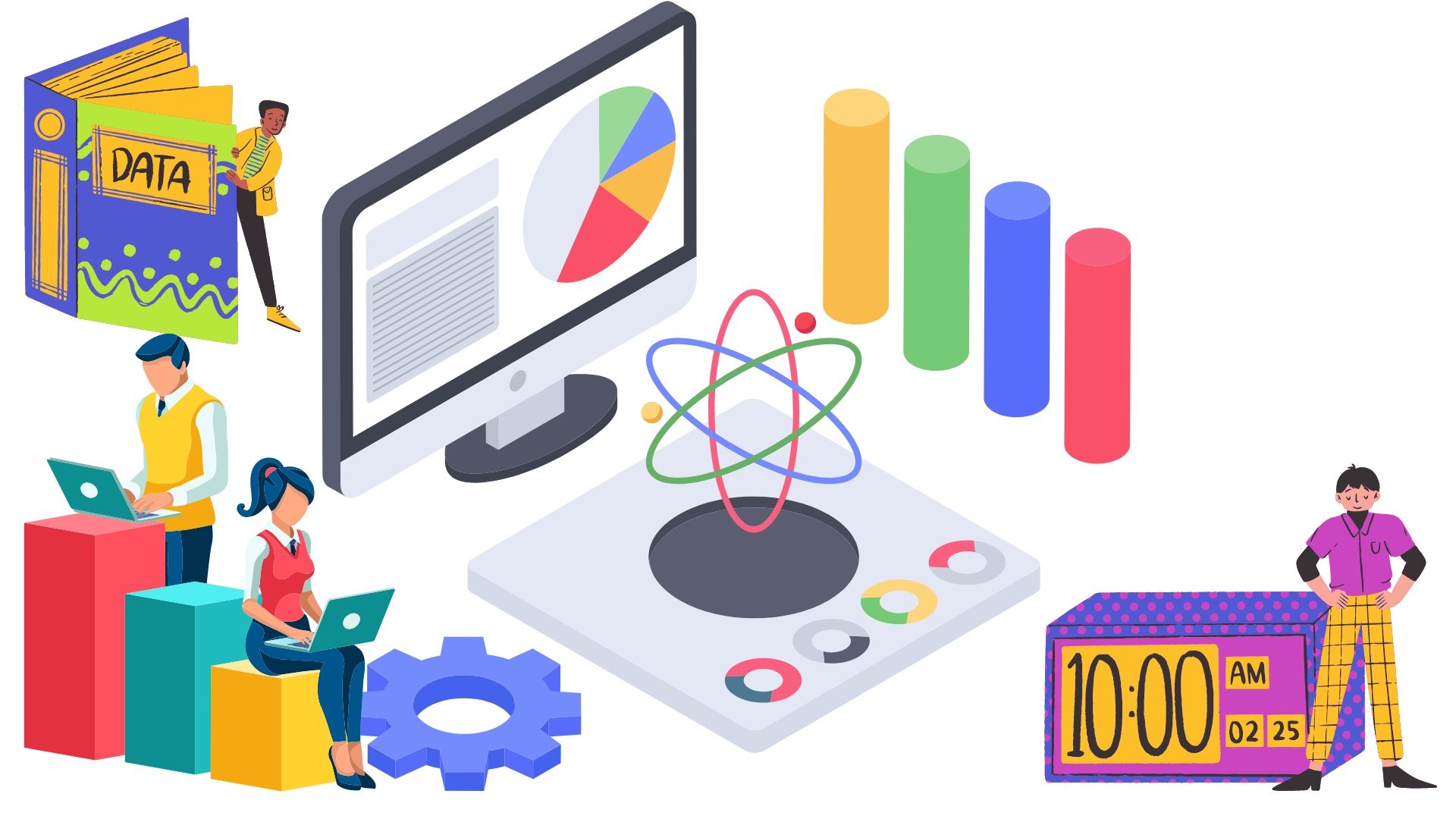A Data Mastery Guide for Small Enterprises
Are you a small business owner looking to make better decisions? Did you know you can make better decisions by leveraging data? Collecting and analyzing data can seem intimidating, but it doesn't have to be.
Data Mastery for Small Business Success
Data is often touted as the "new oil." For small businesses, this comparison rings especially true. Controlling the power of data can be a game-changer, providing insights, shaping decisions, and driving growth. This article sheds light on how small business owners can effectively collect, analyze, and utilize data for measurable success.

1. The Importance of Data for Small Businesses
For small businesses, understanding the market, customer preferences, and operational efficiencies can be the difference between thriving and barely surviving. Data serves as the bridge between business owners and these vital insights.
Targeted Marketing
By understanding who your customers are and what they want, businesses can tailor their marketing strategies for maximum impact.
Operational Efficiency
Data can spotlight areas of waste, inefficiencies, or even new opportunities within a business's operations.
Informed Decisions
Gone are the days of purely gut-feel decisions. Data equips business owners with factual insights to make informed choices.
2. Collecting Relevant Data
Before diving deep into analysis, it's essential to ensure that you're collecting relevant data.
Customer Feedback
Use surveys, feedback forms, and direct interactions to understand your customer's needs and preferences.
Sales Data
Track sales patterns, popular products, and even times of purchase to get a clearer image of your business's pulse.
Web Analytics
Tools like Google Analytics can provide insights into your website's performance and your audience's behavior.
3. Analyzing the Data
Raw data is like an uncut diamond; its true value is realized only after proper shaping.
Use Data Visualization Tools
Platforms like Tableau or PowerBI can transform complex datasets into understandable visuals.
Trends and Patterns
Look for recurring patterns in your data. Is there a specific season or time annually when sales see a surge? Do certain marketing strategies outperform others?
Segmentation
Break down your data into smaller groups (like demographics) to derive specific insights.
4. Turning Insights into Action
The final, and perhaps most critical step, is translating your insights into actionable strategies.
Personalized Marketing Campaigns
If data shows a segment of your customers prefers a particular product, tailor your marketing to emphasize that product to that segment.
Inventory Management
If certain products consistently underperform, it might be time to reconsider your inventory.
Enhance User Experience
If website data shows users dropping off at a particular point, re-evaluate that segment of your user experience.
5. Continuous Learning
The world of business is ever-evolving, and so is data. Continually collecting and analyzing new data ensures that businesses remain agile, adapting to changes in real-time.
Effective Business Data Collection & Analysis Guide
Step 1: Define your goals and metrics
First things first, identify what you want to achieve with your business and the specific metrics you need to track to achieve those goals. For example, if you wanted to generate $25,000 in sales in April, the goal and metric is April 2023 Sales =$25,000. It's like setting a destination before you start driving, except you're using data to get there instead of a map.
Step 2: Choose the right data sources
There are countless data sources available to small businesses, from sales data to social media analytics. Pick the sources that align with your business objectives and the metrics you want to track. Using the same example, the data source for tracking sales would be the point of sales (POS) system used within the business or manual invoices. Think of it like a buffet - pick and choose the data that will nourish your business.
Step 3: Organize and store your data
Once you have your data sources, you need to store them in a structured and organized manner. Now, this is where finesse comes in. If you are using a POS system, then the data is already organized. But, if you are still writing physical invoices (don’t laugh, some people still do), you will need to either get really good at bookkeeping or hire someone to transfer your information to a digital format. No one likes rummaging through a messy closet for a favorite shirt. Organize your data like you would your closet, and you'll thank yourself later.
Step 4: Clean your data
Raw data can be messy and contain errors, duplicates, or inconsistencies. Cleaning your data is like cleaning your house before hosting a party - it may take some effort, but it's worth it. What if you had to refund a customer but your data does not reflect the refund? You would be reporting sales revenue not technically generated. Reconciling your data is extremely important.
Step 5: Analyze your data
This is where the fun begins. Analyzing your data involves identifying patterns, trends, and insights to help you make informed decisions about your business. Think of it like solving a puzzle, except the pieces are data points and the result is a clearer picture of your business. What if you noticed our sales drop significantly on Saturdays? This is a clue that something is influencing sales performance and need more investigating.
Step 6: Act on your findings
The last step involves implementing strategies derived from your findings. It's like baking a cake - you can have all the ingredients and instructions, but it won't come to fruition until you put it in the oven. Use your insights to make informed decisions and take action to drive your business forward. What you found in your sales analysis was only one associate works on Saturday which is causing productivity to decrease, thus decreasing sales. You could decide to schedule two reps on Saturdays to double productivity and would increase sales.
See, collecting and analyzing data can be a game-changer for small businesses. By following these steps, you can collect and analyze data effectively and make informed decisions that drive your business to success. So go forth and be the Sherlock Holmes of your business data!
Key Takeaway
Decision-Driven Data: For small businesses, leveraging data is vital to understand market trends, customer preferences, and operational efficiencies. This ensures targeted marketing, operational efficiency, and well-informed decisions.
Systematic Collection & Analysis: Before reaping the benefits of data, businesses must strategically collect, store, clean, and analyze the right kind of data. Tools like surveys, web analytics, and data visualization platforms play a crucial role in this process.
From Insight to Action: Insights derived from data must be converted into actionable strategies. Whether it's personalizing marketing campaigns, managing inventory, or enhancing user experience, businesses must be agile and adapt based on data-driven findings.
Want to learn more about how data can help your small business succeed? Contact us today to schedule a consultation with one of our experts!
FAQs
Why is data referred to as the "new oil" for businesses?
Data, like oil, is a valuable resource that drives decisions, provides insights, and fuels business growth. When harnessed effectively, data can be a game-changer for businesses, especially small ones.
What are the key benefits of data for small businesses?
Data helps in understanding the market, customer preferences, and operational efficiencies. Specifically, it aids in targeted marketing, increasing operational efficiency, and making more informed decisions.
How often should I analyze and update my business data?
Business environments are ever-evolving, making it crucial to continually collect and analyze new data. This ensures businesses remain agile, adapting to market changes in real-time.
Are there any risks involved in relying heavily on data for business decisions?
While data is a powerful tool, it's essential to ensure it's accurate, relevant, and up-to-date. It's also crucial to use data alongside industry knowledge and intuition. Primetivity Solutions ensures a balanced approach for optimal results.
How does Primetivity Solutions support businesses in their data journey?
Primetivity Solutions offers expert guidance and support throughout the data utilization process, from identifying key metrics to data analysis, ensuring businesses leverage their data for maximum success.
How can I ensure that the data I collect remains confidential?
Primetivity Solutions prioritizes client confidentiality and ensures all data and business details remain private and are used solely for the consulting service provided.
Phone:
Email:
Business Hours:
- Mon - Fri
- -
- Saturday
- -
- Sunday
- Closed
